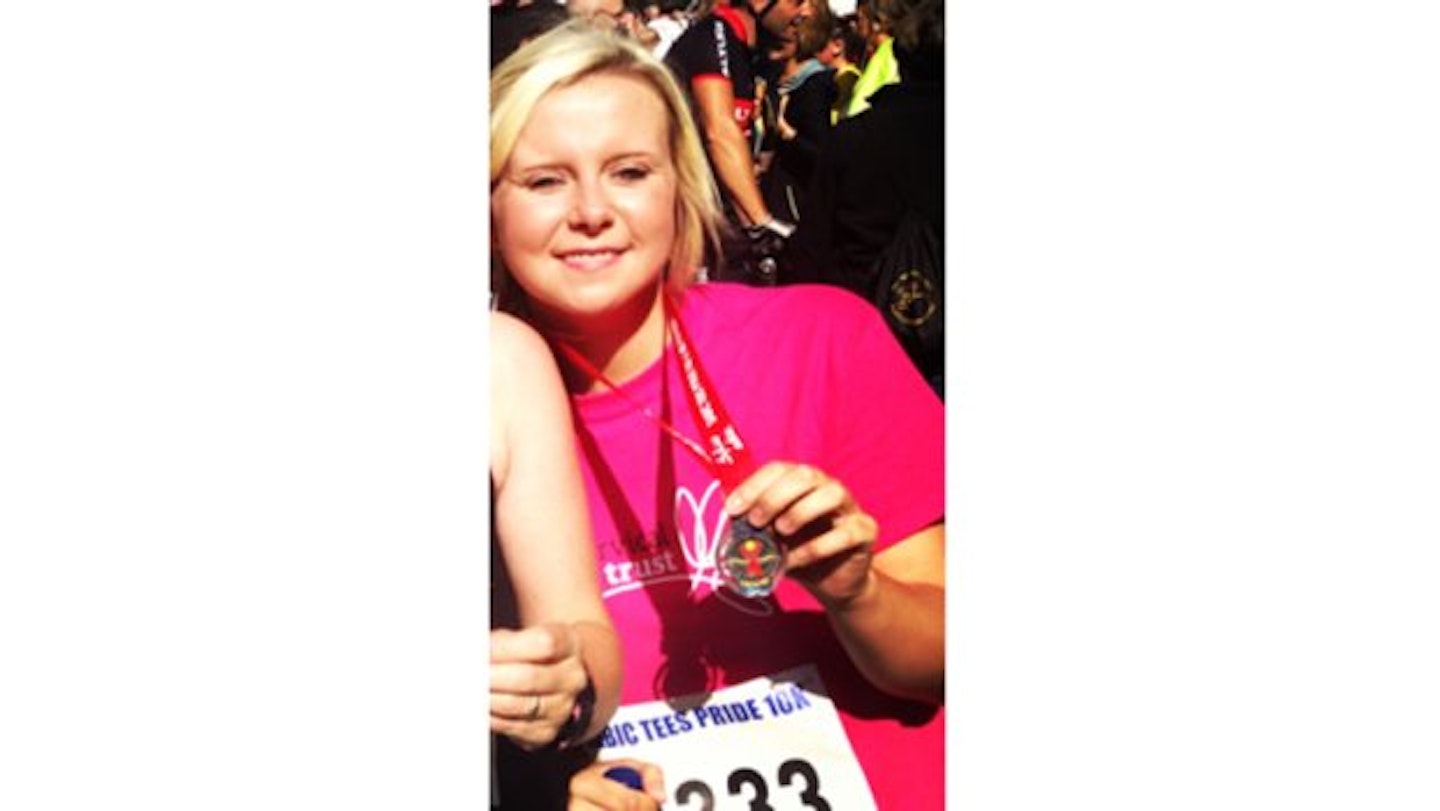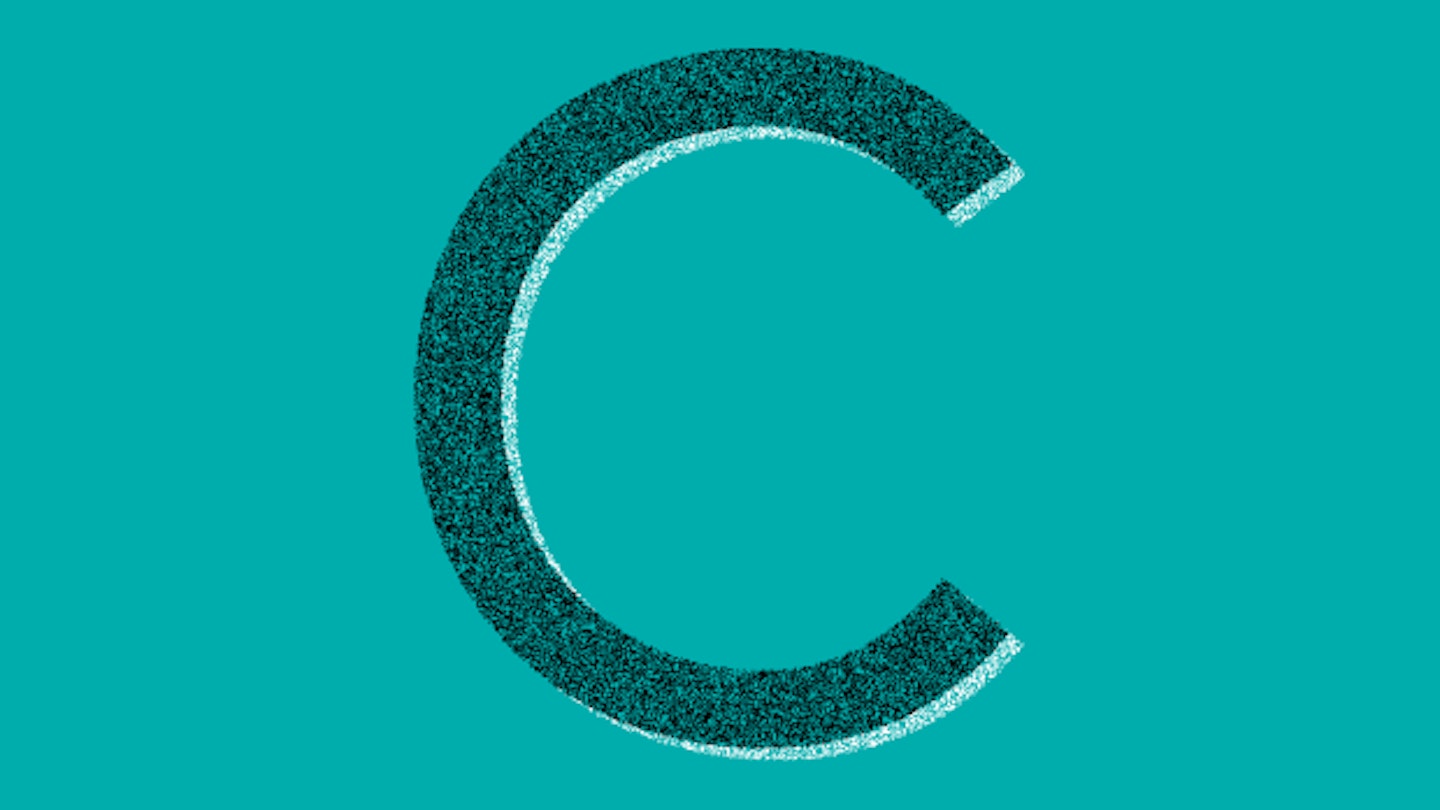When a letter arrived at Gemma Lightfoot’s door on her 25th birthday, she suspected that the news wasn’t good. ‘I’d been getting ready for a birthday dinner with my family when I saw the letter,’ Gemma tells The Debrief.
‘I’d been for my first cervical Pap smear seven days before, after I received a letter saying I was due my first examination. It was uncomfortable, but it only lasted 30 seconds and was no more embarrassing than a normal STI test, so I hadn’t really thought much of it.
'But the nurse had told me my results would take at least two weeks to arrive in the post, so why had they turned up after only a week? I opened the letter and read that I had severe dyskaryosis and an appointment had been made for me at my local colposcopy clinic.’

Feeling worried and confused about what a lot of the words in the letter actually meant, Gemma immediately confided in her parents and best friend, cancelled her birthday plans and started Googling frantically.
‘It was a silly idea, because all I came across were horror stories about cervical cancer and it just made me panic more,’ says Gemma. ‘I kept re-reading the letter. It said it was “unlikely” that I had cancer, but something in the careful wording made me worry.
'It turns out I was right to, because a week later, after a nurse had applied iodine to my cervix, she found a large area of abnormal cells which needed to be cut out. I was terrified about the pain and asked her to put me under [ general anaesthetic], but she advised me that the procedure needed to be done as soon as possible, so I told myself to “man up”, took the local anaesthetic and lay back as she operated on me.
‘She showed me what was removed and I was shocked by the size of the strange, disgusting, red, spongy material in front of me. It seemed massive, and I couldn’t believe it had actually come out of me. I asked her if everything was OK and, with what seemed to me to be a worried look on her face, she told me that she couldn’t tell me now and would have to send the sample off.
'I could sense her anxiety and it sent me into a panic. A week later, a doctor phoned me to tell me that they’d found two areas of cancerous cells in the section of my cervix they’d removed. They were tiny, less than 1mm each, but at just 25, I had stage one cancer.’
Gemma discovered that she had cervical cancer after her first smear test, but tragically Sophie Jones wasn’t so lucky. Last week, the 19-year-old from Merseyside lost her battle with cervical cancer, having been refused a smear test from doctors who said she was ‘too young’ to get the disease, which is extremely rare in women under 25.
Sophie had suffered with severe stomach pains for months, which her doctors had put down to Crohn’s disease. However, after her condition rapidly deteriorated, she was admitted to hospital where doctors discovered that she did, in fact, have cervical cancer. Unfortunately, it had already spread to other parts of her body.
Sophie's death has ignited the debate about when women should go for their first Pap smear test. Currently, the NHS offers free cervical screening to all women aged between 25 and 64 every three to five years. The smear test is not a test for cervical cancer, but identifies early abnormalities that could develop into cancer of the cervix if left untreated.
The test is not currently offered to women under 25 because cervical cancer is so rare in women that young (according to Cancer Research UK statistics, no women under the age of 20 died from cervical cancer between 2009-2011).
The age for smear tests was raised from 20 in 2003 after the Advisory Committee on Cervical Cancer Screening advised the NHS that cervical screening in young women did more harm than good. They claimed that cell abnormalities in younger women often went away on their own accord and that sending young women for further tests and treatment not only causes significant anxiety, but it increases the likelihood of a woman going on to have a pre-term delivery later in life.
The UK isn’t alone in its approach, with France, Belgium, Italy and Ireland all offering cervical screening from the age of 25. In the US, by contrast, women are offered tests two years after they become sexually active.
Earlier this week, Sophie’s relatives released a shocking picture of the teenager before she died, in the hope of raising awareness of their campaign to lower the age at which smear tests are offered to 16. An online petition, set up in Sophie’s memory, has already received nearly 250,000 signatures, which means that it is eligible to be debated in the House of Commons (after passing the 100,000 threshold).
Sophie’s death has served to stir a lot of memories surrounding Gemma’s own experience. She tries not to think about it, but part of her feels like she could have prevented a lot of heartache if she had been able to go for a smear test sooner.
'I was about 22 when Jade Goody died of cervical cancer and her story made me really worried about my own health,’ Gemma recalls. ‘I went to the doctor and asked to have a smear test, but was refused because of my age and told that smears are only used as a diagnostic tool.
'That conversation was running over in my head when I was told I would have to have more of my cervix removed to make sure that the “margins were clear” and all cancerous cells were removed. I knew what the operation entailed after the last time, and it wasn’t exactly pleasant, but I was just desperate to get the cancer out of me and, in a haze, I just got on with it.
'A few weeks later, I received the all-clear and I’ve had no abnormal cells since. But I think part of the reason for that is that I’ve got very little of my cervix left following the two treatments. Most of my fertility is intact, but I do wonder what will happen when I eventually want to have kids – I think it will just require some cervical stitches, but I don’t know.’
After the trauma of her surgery, Gemma wanted to get her life back on track and was surprised how difficult she found it. ‘The first thing I needed to do was get some time off work. I’m a teaching assistant, so I had to phone my headmaster,’ she remembers. ‘It’s sounds silly, but he’s a guy and I was kind of embarrassed to tell him what had happened to me because it was so personal.’
Once she had told him, Gemma had a difficult time being at home and dealing with what had happened to her. ‘I would just sit around trying to process and rationalise what had happened to me. It wasn’t until I found the Jo’s Trust website that I began to regain some strength by reading the survival stories of other women.’
But it wasn’t always easy and Gemma would often be shocked by the powerful emotions she’d experience, sometimes out of nowhere. ‘I once had a complete meltdown walking to my car on my way back from work,’ she remembers. ‘It was just out of nowhere. I went straight to a Macmillan counselling unit and it was a turning point for me because they made me realise it was OK to be traumatised by what had happened.'
The emotional implications of her illness were one thing, but the physical side effects were also difficult to handle. 'After my surgery, I completely lost any sex drive,' Gemma explains. 'I just associated that area with illness and the idea of using it for anything else just didn’t seem nice.'
'Plus, I was also miserable after the surgery – it doesn’t make you want do it, does it? Me and my boyfriend tried months after my opperation, but it was painful and uncomfortable and after that point I just stopped trying again. I don’t think our relationship ever recovered in that sense.’
A year later, Gemma is finally starting to feel ‘normal’ again. ‘I’ve been dating and seen a couple of guys and I’m actually enjoying this part of my life again,’ she says.
Gemma also thinks having cancer has given her a new perspective on life. ‘I used to worry about my weight or getting a few spots, but that stuff seems trivial back once you’ve been through what I’ve been through. Last year, I ran the Middlesbrough 10K for Jo’s Trust and I’ve got a promotion at work.
'Even though I reached a really low point when I was ill, I’m now in a much better place than I've ever been – I actually know what I want from my life. Having cancer in your 20s is awful, but I’m alright now.’
To sign a petition calling to lower the age at which smear tests are offered to 16, go here.
Jo’s Cervical Cancer Trust have launched a new Put Yourself In The Picture app to get people talking about cervical cancer prevention and to encourage women to make a pledge to attend cervical screening. Visit www.jostrust.org.uk/selfie
Follow Sophie on Twitter @sophiecullinane
This article originally appeared on The Debrief.
